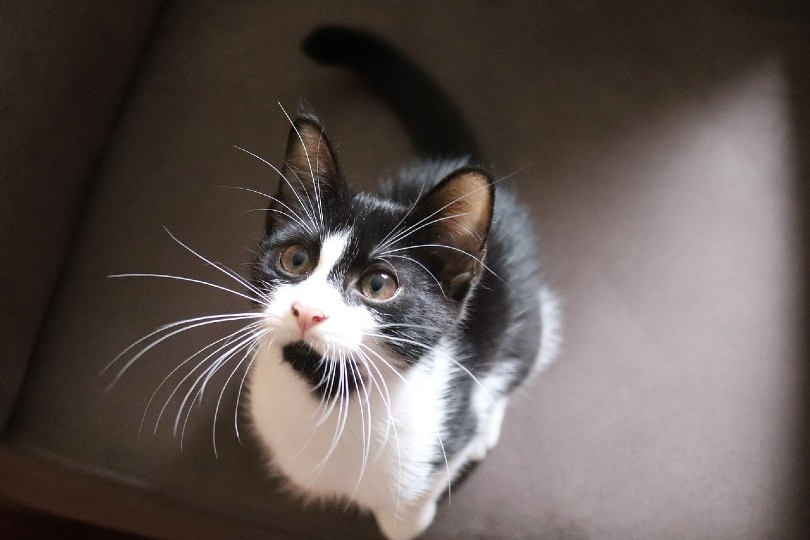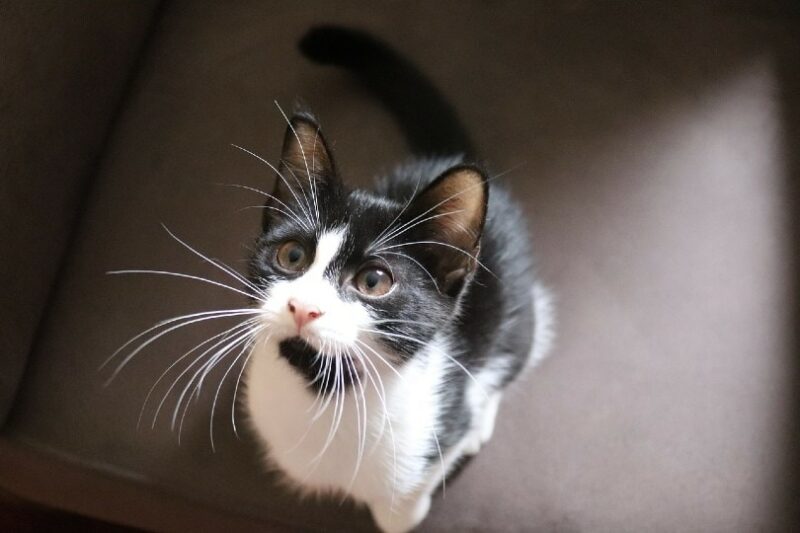So, you’re curious if your cat really knows its name. Well, do they? It’s a good question because we put so much thought into naming our cats.
Here’s the good news: yes, cats know their names… sort of. Cats don’t identify themselves with names as humans do. Instead, they rely on their impeccable memory of sound and experience to understand how we communicate. Here’s how it works.

How Cats Learn Their Names
When you call for your cat and she perks her ears and then gazes into your eyes, she’s not only listening for her name.
From the time she’s known you, your cat has stored in her memory the key components of identifying your voice, voice fluctuations, sound effects, and whether or not any food was involved.
Your cat uses her experiences to form lasting memories. In the beginning, the memories are short-term, but through repetition and positive experiences, your cat learns her name and knows it means you need her attention.

How Long Can a Cat Remember a Person?
Cats don’t have as good of a short-term memory as dogs. They only store information for about 16 hours after the first encounter. But with repetition and good experiences, a cat will eventually store the storm-term memory into long-term memory, thus remembering who someone is.
And if food is involved? That cat will certainly remember who you are. It makes sense why the old phrase “fed once, stayed around” exists for stray cats!
Cats Also Remember Certain Words
Cats don’t speak the same language we do, but they can respond to specific sounds. Clicks, hisses, sound fluctuations, and volume are all part of the learning process with kitties. That’s why cat names with clicks are recommended and why we say “Here, kitty kitty kitty!” Cats tend to learn their names faster when certain sound effects are involved.
Can Cats Forget Names and Faces?
Unfortunately, cats can develop the same cognitive disorders as humans, like dementia. This is known as Feline Cognitive Dysfunction. More than 55% of cats between the ages of 11 and 15 experience memory loss.
The signs of FCD are quite long, but the typical signs include eliminating outside the litter box, spatial disorientation, disinterest in normal social behavior, wandering, lack of grooming, restlessness, etc. The signs are very similar to Alzheimer’s in humans and are, unfortunately, incurable.

Play Your Part to the Fullest
As cat owners, our job isn’t just to make good memories with our cats. We have to meet our cats where they are and help them along the way. A lot of animals have bad memories from their past, especially during the most impressionable times of their youth.
Your role as the pet owner is to help turn those negative experiences into positive ones. Maybe that starts with teaching your kitty her new name.
Featured Image Credit: birgl, Pixabay






